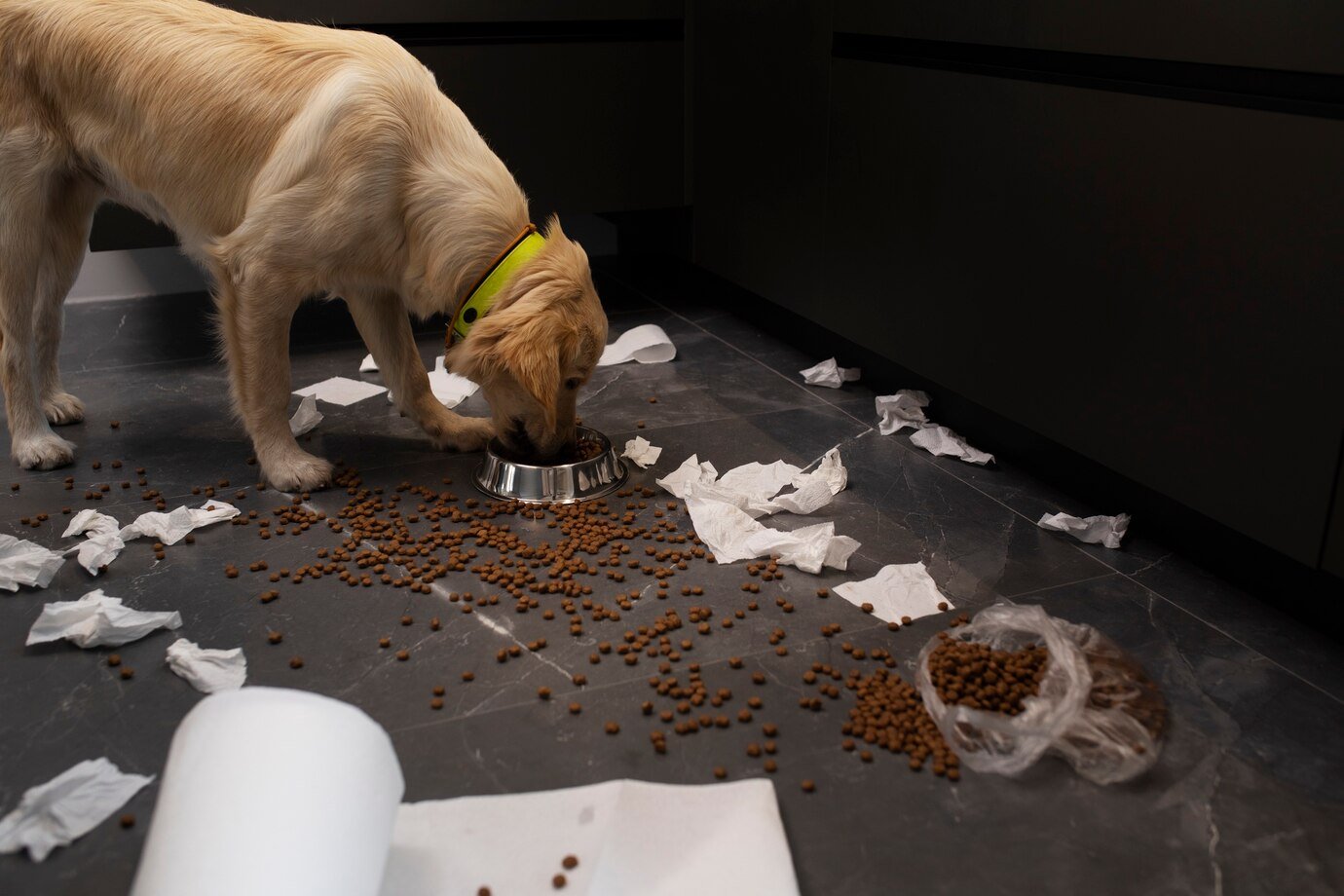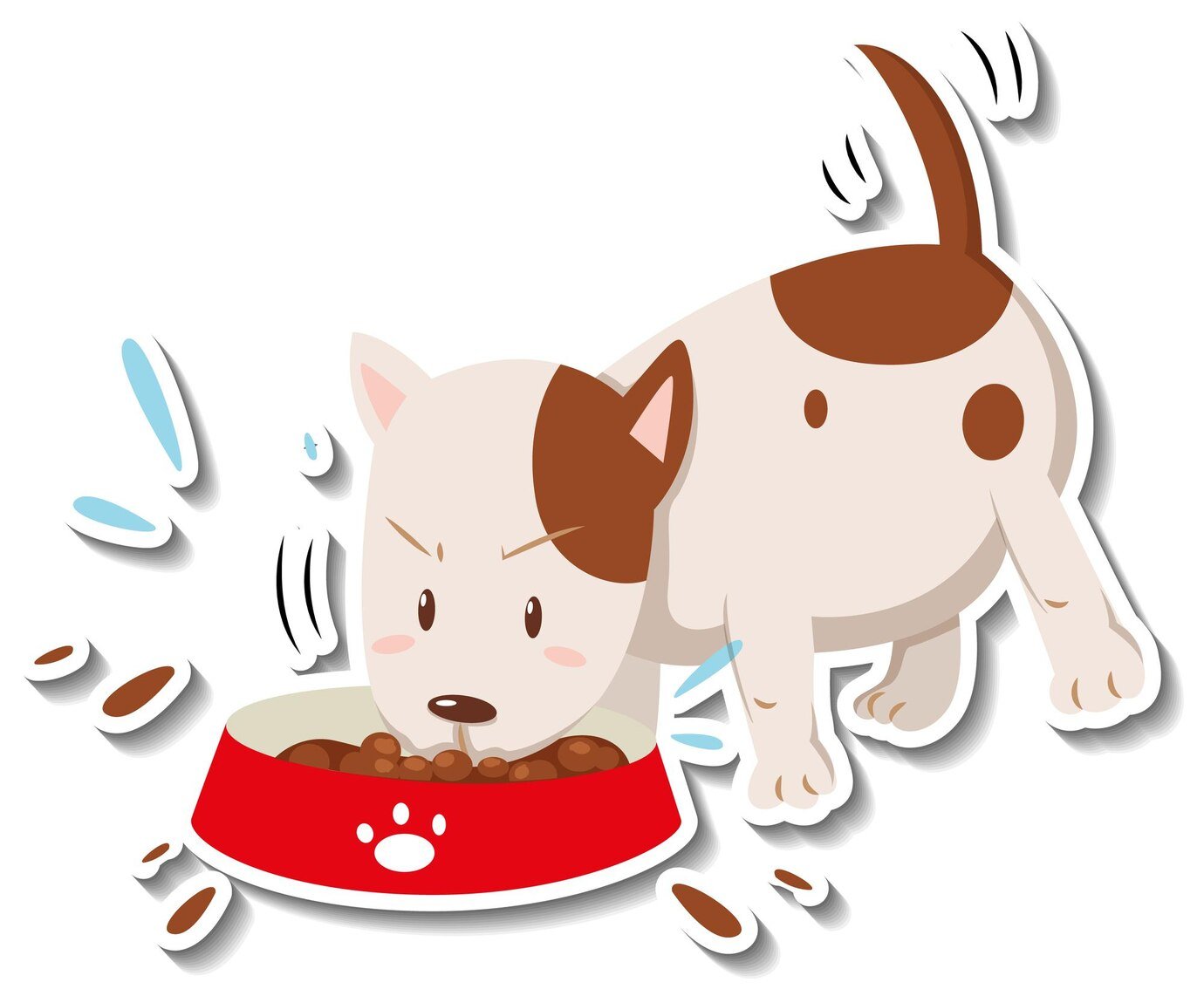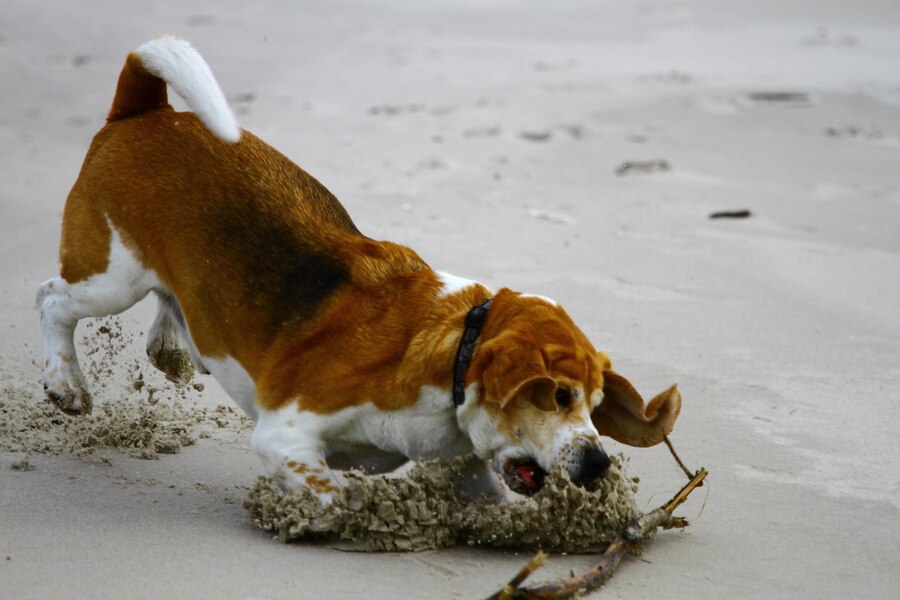Dogs can’t eat fly eggs because they can lead to severe health issues. Fly eggs can harbor bacteria and parasites.
Dogs are curious creatures and often ingest things they shouldn’t. Fly eggs pose a significant health risk for dogs. These eggs can carry harmful bacteria and parasites, causing infections or other serious health issues. Ingesting fly eggs can lead to symptoms like vomiting, diarrhea, and lethargy.
It’s crucial to monitor what your dog consumes to ensure their safety and well-being. Regular vet check-ups and a clean environment can help prevent such incidents. Keeping your dog’s food and water dishes clean and covered can also reduce the risk of fly contamination. Always prioritize your dog’s health by being vigilant about their diet and surroundings.
Introduction To Fly Eggs
Fly eggs are very small and white. They can be hard to see. Flies lay them in dirty places. These eggs hatch into maggots. Maggots turn into flies later.
Fly eggs are found in rotting food and garbage. They also lay eggs in animal waste. Sometimes, they can be in dead animals. Flies look for moist and warm places.
Dogs’ Natural Instincts
Dogs are very curious animals. They like to explore and sniff around. This instinct leads them to find interesting things. They sometimes eat what they find. Fly eggs can be one of those things. But fly eggs are not safe for dogs. These eggs can carry harmful bacteria. Eating them can make dogs sick.
Dogs often eat things off the ground. They might eat grass, dirt, or even trash. This scavenging behavior is natural. But it can be dangerous sometimes. Fly eggs are small and hard to see. Dogs might eat them without knowing. It’s important to watch what dogs eat. Keeping them away from fly eggs is crucial.
Potential Dangers Of Fly Eggs
Fly eggs can carry harmful bacteria. These bacteria can cause serious infections in dogs. Common bacteria include Salmonella and E. coli. Dogs might get diarrhea or vomiting from these infections. Some infections can even be life-threatening.
Fly eggs can also harbor parasites. These parasites can invade a dog’s body. Once inside, they can cause severe health issues. Maggots are a common parasitic threat from fly eggs. These maggots can infest wounds and cause painful sores. Protect your dog by keeping it away from fly eggs.
Symptoms Of Ingestion
Dogs may experience vomiting, diarrhea, and lethargy after ingesting fly eggs. These symptoms indicate potential bacterial infections or parasitic infestations. Prompt veterinary attention is crucial.
Gastrointestinal Distress
Dogs may experience severe vomiting and diarrhea after ingesting fly eggs. These symptoms can lead to significant dehydration. Dogs might also lose their appetite and become lethargic. Watch for signs of abdominal pain such as whining or restlessness. Small dogs and puppies are particularly at risk. Fly eggs can also cause a blockage in the intestines. Immediate veterinary attention is crucial to prevent serious health issues.
Behavioral Changes
Ingesting fly eggs can make dogs more agitated and restless. They might show signs of discomfort by pacing or excessive licking. Dogs could also become more aggressive or defensive. Changes in behavior may indicate pain or distress. Monitor your dog’s actions closely if you suspect ingestion. Quick intervention can prevent long-term behavioral issues.
Veterinary Concerns
Dogs might eat fly eggs by mistake. This can lead to health issues. Watch for signs like vomiting or diarrhea. If your dog shows these signs, call a vet. Other symptoms include lack of energy and loss of appetite. Early help can prevent serious problems.
Vets use different methods to check dogs. They might do a physical exam first. Blood tests can show if there is an infection. Stool tests help find parasites. X-rays can look for blockages. Early diagnosis can save your dog’s life.
Preventive Measures
Dogs should avoid eating fly eggs to prevent health risks. Consuming these can lead to infections and digestive issues. Proper hygiene and supervision help keep pets safe.
Safe Feeding Practices
Always give your dog fresh and clean food. Check for any signs of spoilage. Store dog food in a sealed container. Avoid leaving food out for long periods. Wash your dog’s bowls daily to prevent contamination. Feed your dog in a clean area. Supervise your dog when eating. This helps to ensure they don’t eat anything unsafe.
Home Hygiene Tips
Keep your home clean to prevent flies. Dispose of garbage properly and regularly. Clean up spills and crumbs right away. Use screens on windows and doors to keep flies out. Regularly clean and disinfect pet areas. This helps to reduce the chance of fly eggs being present. Ensure that your yard is free from pet waste. This can attract flies and other pests.
Safe Alternatives For Dogs
Fly eggs can pose serious health risks to dogs, leading to infections and digestive issues. Safe alternatives like cooked meat, vegetables, and dog-specific treats ensure your pet stays healthy and happy.
Healthy Treat Options
Healthy treats are great for dogs. They love carrots and apples. These treats are safe and yummy. Always remove the seeds from apples.
Peanut butter is another favorite. Make sure it has no xylitol. This sweetener is harmful to dogs. Plain yogurt is also a good choice. It’s healthy and tasty.
Natural Chewing Toys
Natural chewing toys keep dogs happy. Rubber bones are fun and safe. They last a long time. Rawhide can also be good, but it should be high quality. Some rawhide can be dangerous.
Bully sticks are a popular choice. Dogs love them. They are safe and digestible. Always supervise your dog with any toy.
Another Post: Can I Use Dog Shampoo on My Cat
FAQ
Can Dogs Eat Fly Eggs Safely?
No, dogs should not eat fly eggs. They can cause infections or gastrointestinal issues.
What Happens If Dogs Eat Fly Eggs?
Eating fly eggs can lead to stomach upset, vomiting, and diarrhea in dogs.
Are Fly Eggs Harmful To Dogs?
Yes, fly eggs can be harmful. They may carry bacteria and parasites that can infect dogs.
Conclusion
Dogs should avoid eating fly eggs due to potential health risks. Fly eggs can carry bacteria and parasites. Protect your pet by keeping their environment clean. Always consult a vet if you suspect your dog has ingested something harmful. Prioritize your dog’s health for a happy, safe life.

